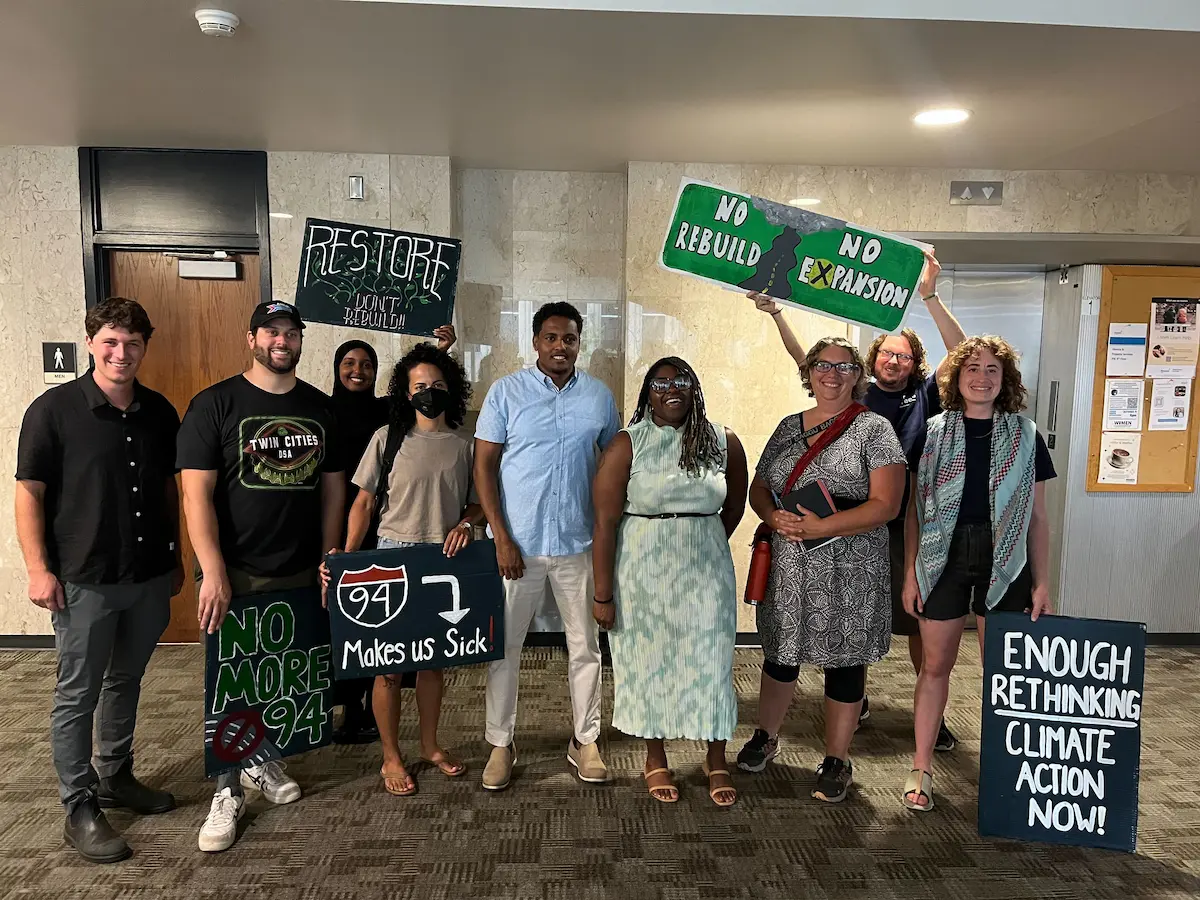
The Minneapolis City Council unanimously passed a resolution that supports highway removal options for the Minnesota Department of Transportation’s (MnDOT) Rethinking I-94 project. The resolution opposes the expansion and rebuild of the 7.5-mile stretch of interstate between Minneapolis and Saint Paul in its current state, and asks that MnDOT study options that would convert the highway to an urban boulevard and repurpose land for new housing, businesses and parks.
“Highway removal and expanding public transit through walking, biking, and rolling are top priorities,” said Ward 7 Council Member Katie Cashman when presenting the resolution to the council. “Reevaluating the process and priorities for reconstructing I-94 and how it could look between Downtown Minneapolis and Saint Paul is an opportunity to do that.”
Our Streets, the advocacy non-profit organizing the Twin Cities Boulevard campaign, released a report on Rethinking I-94 boulevard conversion options earlier this year. The report spurred some of the project’s advisory committee members to demand changes to MnDOT’s project option evaluation.
The resolution addressed some of those demands, asking MnDOT “to improve the Rethinking I-94 project’s evaluation criteria to more accurately measure and prioritize the impacts on adjacent neighborhoods” and “implement proactive anti-displacement policies and reparations programs along the project corridor and evaluate opportunities to repurpose highway land for community benefit.” MnDOT’s current evaluation criteria follow federal guidelines, but this massive infrastructure project was exempt from 2023 state legislation requiring climate and vehicle miles traveled (VMT) assessment.
“Highways are propagandized as vital to our infrastructure,” says Krystle D’Alencar, environmental justice activist and supporter of the Twin Cities Boulevard campaign. “But we cannot achieve environmental justice without addressing the systemic inequities that perpetuate sacrifice zones. And everyone who lives along the highway is sacrificed.”
With most of the 7.5-mile stretch of corridor in question being across the river, Twin Cities Boulevard supporters are wondering if Saint Paul City Council will pass something similar.
“Today’s resolution marks a significant step toward addressing the generational harm caused by MnDOT’s construction of I-94 and reimagining the corridor to reconnect neighborhoods, reduce harmful pollution, and build a more just future,” said José Antonio Zayas Cabán, executive director of Our Streets. “Our focus now shifts to Saint Paul’s city leaders to pass a similar resolution and to MnDOT to take decisive action in implementing these critical changes.”
Twin Cities Boulevard
Transportation is intersectional. Twin Cities Boulevard is a once-in-a-generation opportunity for reparative and environmental justice.